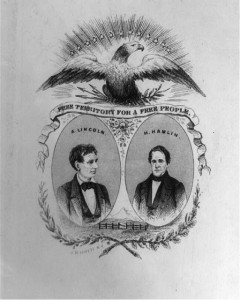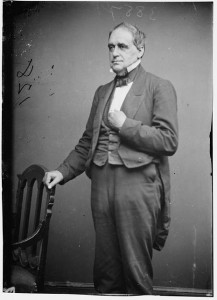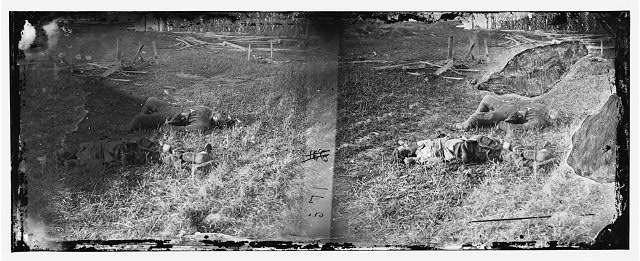As a congressman and senator from Maine Hannibal Hamlin consistently opposed the extension of slavery. According to The life and times of Hannibal Hamlin by Charles Eugene Hamlin, Hannibal’s grandson, Hamlin continued his opposition to slavery as Lincoln’s vice-president. The day after the Union loss at First Bull Run (fought July 21, 1861) Vice-president Hamlin and Senators Chandler and Sumner called on President Lincoln to urge him to free and arm the slaves (p. 423). According to Hamlin’s biography at the United States Senate site:
Hamlin, for instance, was among those who pressed Lincoln hard to issue an emancipation proclamation. Fearing at first that such a measure would divide the North, Lincoln resisted until he believed he could use the issue as a military advantage, to give a nobler purpose to the war. When Lincoln first drafted a proclamation, he invited Hamlin to dinner and let him be the first to see the document, asking for his suggestions. Hamlin later described Lincoln as “much moved at the step he was taking.”
The vice-president must have been overjoyed by the Emancipation Proclamation of September 22, 1862 and apparently wrote President Lincoln a congratulatory letter. 150 years ago today Lincoln replied to Hamlin. The president is sticking to his approach that everything he did was first and foremost to put down the rebellion and save the Union. (Republican) sentiments might be up, but stock prices and troop levels are down.
From Abraham Lincoln’s Writings at Project Gutenberg:
TO HANNIBAL HAMLIN.
(Strictly private.)
EXECUTIVE MANSION, WASHINGTON,
September 28, 1862.
HON. HANNIBAL HAMLIN.
MY DEAR SIR: Your kind letter of the 25th is just received. It is known to some that, while I hope something from the proclamation, my expectations are not as sanguine as are those of some friends. The time for its effect southward has not come; but northward the effect should be instantaneous. It is six days old, and, while commendation in newspapers and by distinguished individuals is all that a vain man could wish, the stocks have declined, and troops come forward more slowly than ever. This, looked soberly in the face, is not very satisfactory. We have fewer troops in the field at the end of the six days than we had at the beginning—the attrition among the old outnumbering the addition by the new. The North responds to the proclamation sufficiently in breath; but breath alone kills no rebels.
I wish I could write more cheerfully; nor do I thank you the less for the kindness of your letter.
Yours very truly,
A. LINCOLN.



